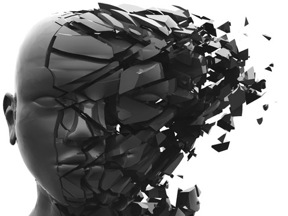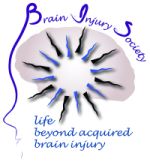
Definition of Acquired Brain Injury
An acquired brain injury is defined as:
Damage to the brain, which occurs after birth and is not related to a congenital or a degenerative disease. These impairments may be temporary or permanent and cause partial or functional disability or psychosocial maladjustment.
– World Health Organization (Geneva 1996)
What is traumatic brain injury?
Traumatic brain injury is sudden physical damage to the brain.
The damage may be caused by the head forcefully hitting an object such as the dashboard of a car (closed head injury) or by something passing through the skull and piercing the brain, as in a gunshot wound (penetrating head injury). The major causes of head trauma are motor vehicle accidents. Other causes include falls, sports injuries, violent crimes, and child abuse.
The physical, behavioral, or mental changes that may result from head trauma depend on the areas of the brain that are injured.
Most injuries cause focal brain damage, damage confined to a small area of the brain. The focal damage is most often at the point where the head hits an object or where an object, such as a bullet, enters the brain.
In addition to focal damage, closed head injuries frequently cause diffuse brain injuries or damage to several other areas of the brain. The diffuse damage occurs when the impact of the injury causes the brain to move back and forth against the inside of the bony skull. The frontal and temporal lobes of the brain, the major speech and language areas, often receive the most damage in this way because they sit in pockets of the skull that allow more room for the brain to shift and sustain injury. Because these major speech and language areas often receive damage, communication difficulties frequently occur following closed head injuries. Other problems may include voice, swallowing, walking, balance, and coordination difficulties, as well as changes in the ability to smell and in memory and cognitive (or thinking) skills.
Specifically, acquired brain injuries are caused by:
– traumatic forces to the head which cause damage to the brain
- Car crash
- Gunshot wounds to the head
- Objects falling on the head
- Falls
- Assaults
– stroke
- Embolism
- Thrombosis
- Aneurysm
– bleeding in the brain
- Intracranial surgery
- Hemorrhage
- Hematoma
– lack of oxygen to the brain
- Anoxia/hypoxia
- Near-drowning
- Cardiac arrest (heart stops beating)
- Drug overdose
– infections in the brain
– toxic exposure
- Carbon monoxide poisoning
- Inhaling toxic chemicals
- Solvent sniffing
- Excessive and prolonged use of drugs and/or alcohol
– fluid build-up in the brain
– brain tumours
Acquired brain injuries can result in changes to how a person functions in the following areas:
Physical Changes
- Problems with walking, sitting, transfers, bathing, household tasks
- Slurred speech
- Chronic pain including headaches
- Fatigue and sleep difficulties
Cognitive Changes
- Takes more time to make sense of information
- Problems with planning, organizing or starting tasks
- Problems with vision
- Problems understanding conversations, coming up with the right word, talking in grammatically complete sentences
- Easily distracted
- Poor memory
- Difficulty with judgement and decision making
- Preservation “getting stuck” on a topic, idea or activity
- Confusion – may not know the date, year, time of day, where they are
- Impulsiveness – act before you think
- Dis-inhibition – no “social filter” to tell you when you shouldn’t do or say something
Emotional Changes
- Irritability “short fuse”
- Mood disorders like depression, anxiety, anger management problems
- Emotional liability – crying for no apparent reason
- Emotional or behavioural outbursts
- Normal emotional responses to the incredibly devastating impact of the brain injury
- Sadness, anger, frustration, loss of sense of self, anxiety about having another stroke or injury
Social Changes
- Awkwardness or inappropriate behaviour because of difficulty reading social cues
- Isolating yourself because you feel different and therefore leading to being treated differently
- Trouble with social and work relationships because of awkwardness and poor coping skills
- Family breakdowns
- Loss of privacy, independence, future plans, income
- Change in roles – (was a caregiver, now has to receive care from others)
